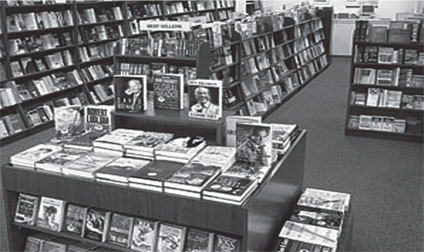Formative years of a literatus
Introduction
By Ranga Chandrarathne
"The past is a foreign country: they do things differently there"-
L.P Hartley
The famous opening sentence of L.P Hartley’s novel The Go-Between
(1953) amply demonstrates the vital role that nostalgia plays in fiction
in general and in biographies and autobiographies in particular.
 |
|
Pablo D'stair |
| Pablo D’Stair, born in 1981, is a writer of novels, short stories and
essays. As a literary philosopher, he produces the twice annual series
of book length dialogues (Predicate) with various, contemporary
independent literary artists.
He is the founder of Brown Paper Publishing (2007, closing operations
in 2012) and the independent press KUBOA (launching July 2011) which
focuses on releasing novellas and collections of short fiction from a
variety of US and international authors.
He lives in Las Vegas, Nevada (USA) with his wife (novelist and
co-publisher Sarah D’Stair) and two children. He welcomes any and all
communication, be it about his work specifically or any associated
subject of literature, philosophy, or publishing, and can be contacted
at [email protected].
|
The literary term nostalgia is defined as a strong yearning for the
past, very often in idealised form. In other words, it is a general
interest in the past eras and their personalities, places and events.
This series of self-contained stories portraying the personal history
of post-modernist writer and regular contributor to Montage, Pablo
D’stair is not only biographical sketches of a writer but also a
portrayal of life in the USA.
Written in a down-to-earth language, the series cover formative years
of the writer from his teenage years to his maturity into adulthood.
What Pablo presents in Seven Stories about working in a bookstore is not
the idealised past but the past with ups and downs, vividly realised
descriptions about people, places and perhaps, many editors in his life.
The rather eventful teenage life he spent with books in a bookstore
records an important phase in the kind of life particularly in the
context of US publishing industry.
Nostalgia
Nostalgia describes a yearning for the past, often in an idealized
form. The word has its roots in the Greek language. ‘Nostos’ means to
‘return home’ and ‘algos’ means ‘ache or pain.’ It was also, described
as a medical condition, a form of melancholy.
However, in common usage, nostalgia in general, is an interest in
past eras and their personalities and events, especially in the ‘good
old days.’ Sometimes, it is brought on by a sudden image or remembrance
of something from one’s childhood.
Nostalgia is a powerful motif woven into the very matrix of the seven
stories. It is the yearning for the lost past which has been an
important period in the personal history of the author.
The past is looked at from the perspective of a teenager. Though the
experience of an individual at a given time marks a millestone in one’s
life, it is invariably reflected upon the lives of a generation. Often
the nostalgia is an idealised past.
However, the difference in the seven stories lies in the fact that
the author does not idealise the spell he worked in a Bookstore. It is a
period of mixed feelings; ups and downs which mark the teenager’s
progression through a passage of time culminating in his maturity as a
fully-fledged man. In Seven Stories, nostalgia serves as an important
motif of the narration.
Portrayal of principal characters
Another important factor of the narration is the portrayal of
principal characters such as Peter Crisp, the manager of Bravado
Bookmark, a bookstore where Pablo worked as a teenager. His character is
vividly realised in the narration in a candid manner.
“Peter Crisp was the manager of Bravado Bookmark, a thing he seemed
to take simultaneously as a badge of distinction and a cross to bear—he
was middle-late thirties, seemed baked by life, wiry and out of shape,
bent over a cigarette or incessantly scuffing his hair.
 |
|
Narrator Pablo D'stair |
I was still fledgling to retail work, so it was easy for him to spin
himself as some kind of poor man champion of the free world to me—not
that I believed him, but I had no call to know that he didn’t really do
any work and so had little to complain about, littler still to hold his
head up, over.
It was made evident fairly quickly, though, that the rest of the
staff didn’t particularly cotton to him—a sad thing, in retrospect,
because it wasn’t so much because he was a flawed leader, but because he
was standing in their way from advancing to slightly better hours,
retaining the same rate of pay (not that they showed any clear
indicators of being able to breathe life into Bravado, they were just
waiting out the retail evolutionary clock, easier than looking for work
elsewhere). “
The writer skilfully encapsulates with a remarkable economy of
expression the attitude on the part of Peter to Bravado Bookmark when he
says that Peter who is in his late thirties, considers his position as a
manager ‘as a badge of distinction and a cross to bear’.
Particularly the use of phrases such as ‘baked by life’ amply
demonstrates, among other things, the author’s ability to paraphrase the
hard life that Peter spent into apt description. For the seven stories,
the author has used first person narrative in an effective manner.
First person narrative
One of the fundamental characteristics of Seven Stories about working
in a Bookstore, is the effective use of first person narrative. However,
the stories are not narrated in the form of diary entries which have
been put together in a chronological order.
Unlike in a third person narrative, using first person narrative
would inextricably link the author to the story. In fact, in these
stories, the author is a character and plays a prominent role in the
narration.
It is pertinent to look at, briefly, the use of first person
narrative mode in literature. What the common practice is the use of
third person narrative mode where the narrator does not directly involve
in the plot and describes unfolding events and characters in a fiction.
However, in an autobiography or autobiographical sketches, the
narrator is none other than the writer himself or herself. There are
rare instances in literature where instead of ‘I’ , ‘We’ is used to
narrate the story. For instance, in the Short Stories Twenty-Six Men and
a Girl by Maxim Gorky and A Rose for Emily by William Faulkner, first
person plural form has been used.
 |
|
Bookstore |
In the novels Anthem by Ayn Rand, The Virgin Suicides by Jeffrey
Eugenides, During the Reign of the Queen of Persia by Joan Chase, Our
Kind by Kate Walbert, I, Robot by Isaac Asimov, and Then We Came to the
End by Joshua Ferris, plural form of the first person narrative mode has
been effectively used.
Depiction of teenage years
The depiction of teenage years of the author is another prominent
characteristic in the series. The 18-year- old boy achieves maturity
through ups and downs and fighting with the uncertainty in the American
labour market.
Before he joined Bravado Bookmark which was a bookstore, he had
worked at Baskin Robbins in the same strip mall and he had used to steal
Crime and Punishment. What is important is not the fact that he had
stolen books from the bookstore where he later worked but the fact that
he had cultivated the habit of reading at an early stage in his life.
“ When I was eighteen-years-old and had a job at Baskin Robbins, I
worked a really amateurish register grift and on my breaks I would walk
to the bookshop at the other end of the strip mall to steal copies of
Crime and Punishment. I stole a total of three copies over the course of
a few weeks, just because I liked doing it.
***
The Bravado Bookmark was the epitome of strip mall bookshops—it was
something that had no reason to exist, but it did. Throughout my life I
had built up a kind of unconscious affinity for such places—from the odd
Crown Books (that eventually became a Pet Shop) near the comic book
store I frequented until I was about fifteen to the Super Crown that
took up space next to the Party Mart (and eventually became the Party
Mart) in the shopping center where the new grocery store was built when
I was kid, even to the J.B. Dalton on the lower level of Mall I used to
go to—the places held a wonderful allure. I mean, I had no reason to
think of a bookshop as anything different, and in these shops I had come
across all of the wonderful and formative literature of my life.
| From next week on , Montage will serialize Seven stories about
working in a Bookstore by Pablo D'stair |
Bravado, it was just a storefront I would see, I’d never once gone
into it until it was to steal books. “
The series of stories commences with the boy joining the Bravado
Bookmark. The bookstore was situated at an odd place with a little or no
sale and had to be closed down towards the end of the series. The
central theme of the story, apart from the author’s childhood, is the
depiction of the milieu albeit in a miniaturised form.
“I was still in high school for the first few months of my stint at
Bravado Bookmark. Because of where my school was with relation to my
family’s house (a good thirty, forty minute drive) my mother had gotten
me a small apartment, provided I work to pay at least a good portion of
the rent—this suited me fine, because before I had the apartment I would
just stay in the town where I went to school (my girlfriend lived there,
so I wanted to be there as much as possible) either spending the nights
out of doors or bumming places to sleep where I could from friends.
It was my friend and classmate Morgan Wire who had gotten me my first
(short-lived) job at the movie theatre in the same strip mall as
Bravado. He was the sort who was chomping at the bit for the release of
the new Star Wars films, doing whatever he could to get his hands on
pieces of information, leaked trailers, etc.
I had no feeling about the films, one way or the other, other than a
half-formed (mostly borrowed from people older than me) stance that the
films were a bad idea, the originals should have been left alone. “
Though the stories give out very little details of the life in which
the author spent his teenage years, some of the details such as the kind
of independent lives that the high school children enjoyed even in
1970s, among other things, suggest the high degree of freedom that
teenagers enjoy in the USA.
Seven Stories about working in a Bookstore codifies not only the
formative years of a writer but vividly realised life in the USA in the
context of publishing industry.
|

